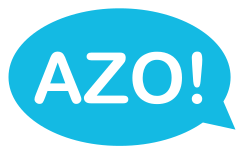Residence and Access to the Labor Market
As a recognized refugee or a person with subsidiary protection, you can work in
Flanders. You can also work during the asylum procedure after a waiting period (4
months as of your application date) in which you cannot work. Before recognition of
asylum (for asylum seekers), work permit is needed to work in Belgium. You can get
your permit as a stamp on your orange card at your municipality.
The procedure regarding work permits has been changed since 3 January 2019. From now
on, for a labor migrant's employment, a combined permit (residence + work) must be
applied for more than 90 days. This is an electronic residence card that contains
both an work permit and an residence permit. In addition, the work permit C is
abolished. Those who used to qualify for a work permit C can now work by law on the
basis of their temporary residence permit.
Please see below how you can work in accordance with your status and which documents
you need.
| Document | as employee | as self-employed | |
|---|---|---|---|
| During asylum process (as asylum seeker) |
|
|
|
| After recognized as refugee |
|
|
|
| After subsidiary protection granted |
|
|
|
You can find detail regarding work permit at the websites of the Agency for inclusion and integration and werk.be.
Can't find the answer to your question? Contact the legal help desk of the Integration and Integration Agency.
Recognition of Your Diploma
Recognition of your diploma is a plus for you to find a job, however it is not a must. For more information, visit the Diploma Recognition page.
Tips and tricks
You can also have your experiences and competences recognized
You can have them tested by a recognized EVC organization.
You will then receive an EVC certificate.
You can use this certificate for exemptions in training or on the labor market.
- It takes at least 2-4 months to get a diploma recognition from NARIC and even longer for some cases. It’d be better if you can start the procedures as soon as possible.
- For application, you can get assistance from Integration Agency (AgII) for the first 3 years of your integration contract, and from VDAB after 3 years.
Professional Card

If you want to work in Belgium as a self-employed person, you must apply for a professional card as a foreigner. This is the permission of the Belgian government to pursue an independent professional activity in Belgium. You can find the detail at here.
Where you can apply for a professional card, search and find them here.
For detailed information, visit our entrepreneurship entrepreneurship page.
Project AZO helps you to start up your own business as self-employed. You can get direct support at many places in Flanders.
Good Knowledge of Dutch
Even though your job would be English based, many companies would like to
hire employees who speaks Dutch, so that learning Dutch, at least level B1
is a kind of must to easily find a job in Flemish Labor market.
For more information, visit the Language Learning page.
Dutch level A2 is also a must for getting an Integration Certificate from Integration Agency.
Get advice and practical help from Integration Agency to choose a language course to follow. You can use ERK-berg tool for seeing different routes of learning Dutch.
Tips and facts
- It is better you start to learn Dutch as soon as possible after you arrive in Flanders. Dutch learning is financially supported by the government.
- You can take slow and fast (intensive) courses depending on your time and ability. You can either take courses at adult education centres or university language centres. See these different learning routes on ERK-berg.
Enough ICT Knowledge
The world is in the stage of Industrial Revolution 4.0. It means that the requirement for basic IT knowledge is a must, not all jobs require the same amount of ICT knowledge, however basic skills is required in almost every kind of jobs. For example, you will almost always come into contact with programs such as Word and Excel.You can follow short free VDAB workshops to learn practical basic information (MS Office). Test your knowledge of these programs. If you want to test your general IT knowledge, you can take the Digital Literacy test.
 CONTACT THE LEGAL HELP DESK
CONTACT THE LEGAL HELP DESK
